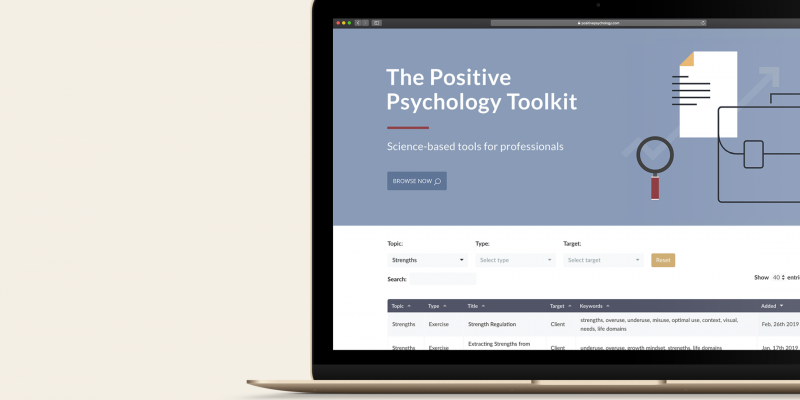Appreciative Inquiry (AI) is a powerful approach to organizational development that focuses on the positive aspects of a company or team in order to facilitate growth and change. When conducting AI interviews, it is important to ask the right questions in order to uncover insights and perspectives that can drive positive change within the organization.
Here are 119+ Appreciative Inquiry interview questions and examples that you can use to guide your interviews:
1. What are some of the highlights of your experience working at this company?
2. Can you recall a time when you felt especially engaged and motivated in your work?
3. How would you describe the culture of the company?
4. What values do you think are most important to the success of the organization?
5. Can you share a recent success story from your team?
6. How do you feel your strengths are utilized in your role?
7. What do you think sets this company apart from others in the industry?
8. Can you give an example of a time when the company demonstrated its commitment to employee development?
9. What do you think are the key factors that contribute to employee satisfaction?
10. Can you think of a time when the company showed support for your personal growth and development?
11. How would you describe the level of trust within the team?
12. What do you think are the main sources of inspiration for employees in the company?
13. Can you think of a time when the company successfully navigated a challenging situation?
14. How do you feel your suggestions and ideas are valued within the organization?
15. Can you share a time when the company demonstrated a commitment to social responsibility?
16. What do you believe is the company’s greatest strength?
17. Can you recall a time when the company effectively communicated a change or new initiative?
18. How do you feel the company supports work-life balance?
19. Can you share a time when the company promoted diversity and inclusion?
20. What do you think are the key factors that contribute to employee engagement?
21. Can you recall a time when the company demonstrated a commitment to innovation?
22. How do you feel the company supports ongoing learning and development?
23. What do you believe is the company’s greatest opportunity for growth and improvement?
24. Can you give an example of a time when the company successfully adapted to changing market conditions?
25. How would you describe the level of collaboration within the team?
26. Can you share a time when the company demonstrated a commitment to sustainability?
27. What do you think sets this team apart from others in the company?
28. Can you recall a time when the team successfully achieved a challenging goal?
29. How do you feel your contributions are recognized within the team?
30. What do you believe is the team’s greatest strength?
31. Can you give an example of a time when the team effectively communicated a new idea or approach?
32. How would you describe the team dynamic and culture?
33. What values do you think are most important to the success of the team?
34. Can you recall a time when the team demonstrated resilience in the face of adversity?
35. How do you feel the team supports individual growth and development?
36. What do you think are the key factors that contribute to team cohesion and effectiveness?
37. Can you share a time when the team successfully overcame a conflict or challenge?
38. How would you describe the level of trust and mutual respect within the team?
39. What do you think sets this project apart from others you have worked on?
40. Can you give an example of a time when the project team effectively collaborated with other departments or stakeholders?
41. How do you feel your skills and expertise are utilized in the project?
42. What do you believe is the project’s greatest strength?
43. Can you recall a time when the project successfully adapted to changing requirements or circumstances?
44. How would you describe the level of communication and information sharing within the project team?
45. What values do you think are most important to the success of the project?
46. Can you share a time when the project team demonstrated creativity and innovation?
47. How do you feel the project supports your personal and professional development?
48. What do you think are the key factors that contribute to the project’s ability to deliver results?
49. Can you give an example of a time when the project team successfully managed risks or uncertainties?
50. How would you describe the level of collaboration and teamwork within the project?
51. What do you think sets this initiative apart from others in the organization?
52. Can you recall a time when the initiative successfully engaged stakeholders and partners?
53. How do you feel your role and contributions are valued within the initiative?
54. What do you believe is the initiative’s greatest strength?
55. Can you share a time when the initiative demonstrated adaptability and flexibility in response to changing circumstances?
56. How would you describe the level of alignment and shared purpose among team members?
57. What values do you think are most important to the success of the initiative?
58. Can you give an example of a time when the initiative showcased its commitment to results and impact?
59. How do you feel the initiative supports your personal and professional growth?
60. What do you think are the key factors that contribute to the initiative’s ability to drive change and transformation?
61. Can you recall a time when the initiative successfully addressed a critical issue or challenge?
62. How would you describe the level of trust and collaboration among team members involved in the initiative?
63. What do you think sets this program apart from others in the organization?
64. Can you share a time when the program effectively engaged participants and stakeholders?
65. How do you feel your role and contributions are valued within the program?
66. What do you believe is the program’s greatest strength?
67. Can you give an example of a time when the program showcased its impact and outcomes?
68. How would you describe the level of enthusiasm and engagement among participants in the program?
69. What values do you think are most important to the success of the program?
70. Can you recall a time when the program successfully demonstrated innovation and creativity?
71. How do you feel the program supports the growth and development of participants?
72. What do you think are the key factors that contribute to the program’s ability to deliver value and results?
73. Can you share a time when the program successfully addressed the needs and expectations of participants?
74. How would you describe the level of collaboration and cooperation among stakeholders involved in the program?
75. What do you think sets this training apart from others you have attended?
76. Can you give an example of a time when the training program effectively engaged participants and facilitated learning?
77. How do you feel your learning needs and preferences are taken into account in the training program?
78. What do you believe is the training program’s greatest strength?
79. Can you recall a time when the training program successfully applied innovative and interactive learning methods?
80. How would you describe the level of support and guidance provided by trainers and facilitators in the training program?
81. What values do you think are most important to the success of the training program?
82. Can you share a time when the training program helped you develop new skills or knowledge that were immediately applicable to your work?
83. How do you feel the training program supports your personal and professional growth?
84. What do you think are the key factors that contribute to the training program’s ability to deliver impactful learning experiences?
85. Can you give an example of a time when the training program successfully addressed participants’ individual learning needs and goals?
86. How would you describe the level of engagement and participation among trainees in the program?
87. What do you think sets this coaching experience apart from others you have had?
88. Can you recall a time when your coach helped you gain new insights and perspectives on a challenging issue or situation?
89. How do you feel your coach supports your personal and professional development?
90. What do you believe is the coach’s greatest strength?
91. Can you share a time when your coach helped you achieve a significant personal or professional goal?
92. How would you describe the level of trust and openness in your coaching relationship?
93. What values do you think are most important to the success of the coaching experience?
94. Can you give an example of a time when your coach provided valuable feedback and guidance?
95. How do you feel the coaching experience supports your motivation and performance?
96. What do you think are the key factors that contribute to the coaching experience’s ability to inspire growth and transformation?
97. Can you recall a time when your coach helped you overcome a significant challenge or obstacle?
98. How would you describe the level of accountability and commitment in your coaching sessions?
99. What do you think sets this mentoring relationship apart from others you have had?
100. Can you share a time when your mentor provided valuable guidance and support in your personal or professional development?
101. How do you feel your mentor supports your growth and learning?
102. What do you believe is the mentor’s greatest strength?
103. Can you give an example of a time when your mentor helped you navigate a difficult decision or situation?
104. How would you describe the level of trust and mutual respect in your mentoring relationship?
105. What values do you think are most important to the success of the mentoring relationship?
106. Can you recall a time when your mentor helped you see new possibilities and opportunities for growth?
107. How do you feel the mentoring relationship supports your confidence and development?
108. What do you think are the key factors that contribute to the mentoring relationship’s ability to facilitate learning and growth?
109. Can you share a time when your mentor provided constructive feedback that helped you improve your performance?
110. How would you describe the level of engagement and commitment in your mentoring conversations?
111. What do you think sets this leadership development program apart from others you have participated in?
112. Can you give an example of a time when the leadership development program successfully engaged participants and inspired growth?
113. How do you feel your leadership strengths and potential are supported in the program?
114. What do you believe is the program’s greatest strength in developing effective leaders?
115. Can you recall a time when the leadership development program helped you enhance your leadership skills and abilities?
116. How would you describe the level of support and mentorship provided by program facilitators and coaches?
117. What values do you think are most important to the success of the leadership development program?
118. Can you share a time when the program helped you strengthen your collaboration and communication skills as a leader?
119. How do you feel the leadership development program supports your personal and professional growth as a leader?
By asking these Appreciative Inquiry interview questions and examples, you can uncover valuable insights, perspectives, and stories that will help to inform and guide positive change and growth within your organization. Remember to listen actively and engage with interviewees in a supportive and open manner in order to create a safe and trusting environment for sharing their experiences and ideas. Let the principles of Appreciative Inquiry guide your interviews, focusing on what is working well and building on strengths to drive positive transformation and success within your organization.



